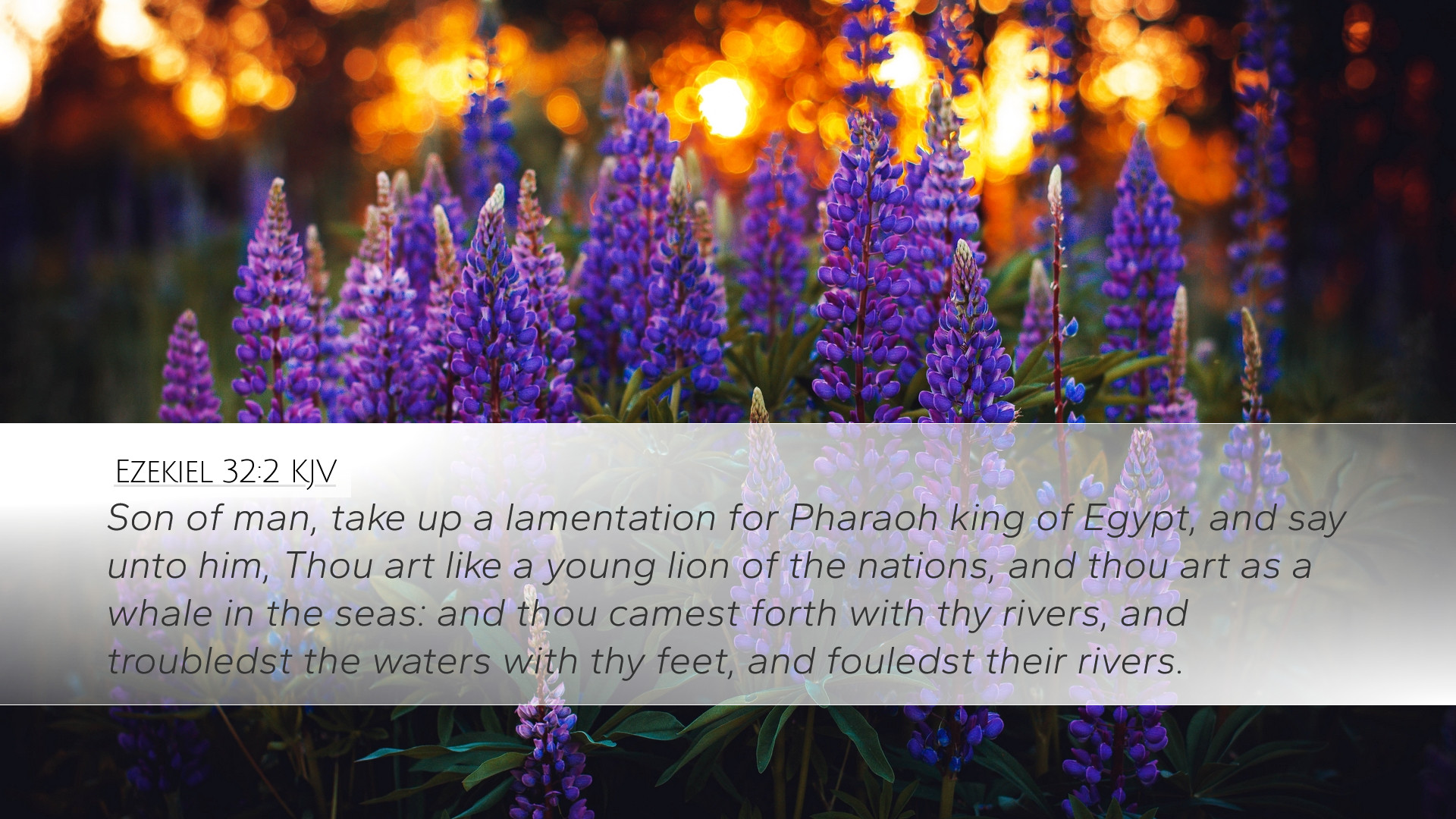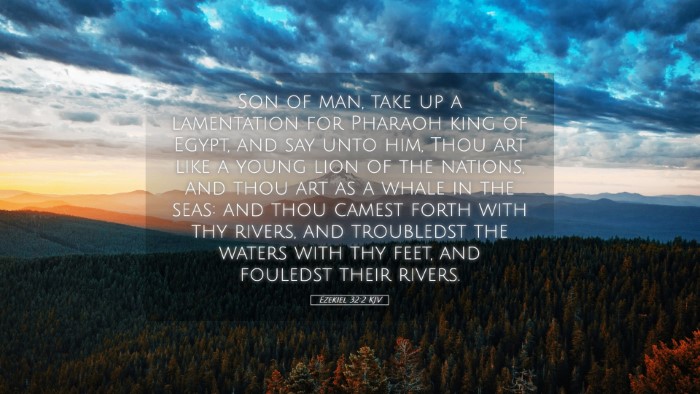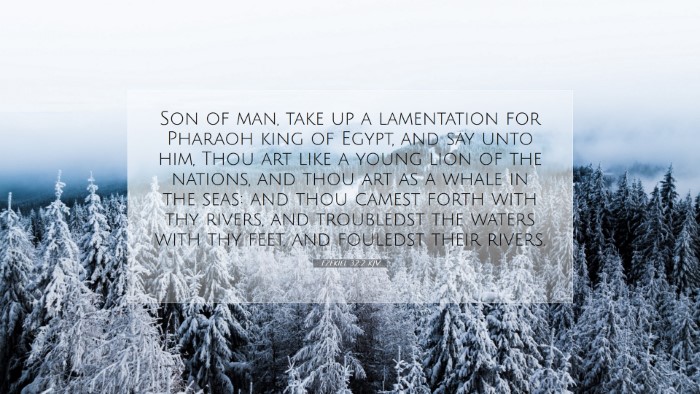Ezekiel 32:2 Commentary
The verse Ezekiel 32:2 states: "Son of man, take up a lamentation for Pharaoh king of Egypt, and say unto him, Thou art like a young lion of the nations, and thou art as a whale in the seas: and thou camest forth with thy rivers, and troublest the waters with thy feet, and fouledst their rivers."
This lamentation represents one of the profound sayings in the prophetic ministry of Ezekiel and is pivotal for understanding the broader context of judgment within the book.
Context and Background
Ezekiel, a prophet during the Babylonian exile, often communicated God's messages through metaphoric language and vivid imagery. In this instance, God instructs Ezekiel to mourn Pharaoh, symbolizing Egypt's power and pride, indicating impending judgment. The imagery of a young lion and a whale serves to illustrate the dominance Egypt had over other nations and its overwhelming presence in the waters, figuratively stirring up chaos.
The Symbolism of the Young Lion
Matthew Henry emphasizes that comparing Pharaoh to a young lion speaks of his bravery and formidable strength among nations. The lion symbolizes kingship, power, and the fierce nature of Egypt. Yet, this lion's might, set against divine judgment, reveals its vulnerability. This duality illustrates the concept that human power is transient in the face of divine sovereignty.
Albert Barnes builds on this by noting the characteristics of lions in the ancient Near East, where they were seen as kingly figures among animals. Here, the lion's roar is likened to Pharaoh's proclamation, asserting his might; however, this is soon to be met with divine decree leading to his downfall.
Imagery of the Whale
The comparison to a whale in the seas introduces another aspect of Pharaoh's nature. Adam Clarke notes that whales are not only massive but are also known to stir up the waters, creating tumult. This metaphor serves a dual purpose: it highlights Pharaoh's mighty presence while foreshadowing the catastrophic consequences of Egyptian pride.
Moreover, the whale represents an untamed force of nature. The reference to fouling rivers indicates that Pharaoh, in his pride and arrogance, not only disrupts the natural order but also contaminates God's creation, thus invoking divine wrath.
The Lamentation and Its Purpose
This lamentation is not merely a sorrowful sound but serves as a prophetic declaration of judgment. As noted by various scholars, it holds both a ceremonial and theological significance. The act of lamenting Pharaoh embodies deep grief for leadership that has chosen a path against God, encapsulating the theme of "exile" faced by both Egypt and Israel.
-
The lamentation signifies God's great mourning over both the destruction of nations and the judgment upon sin.
-
It reminds God's people of His sovereignty and the ultimate accountability of kings and nations before Him.
Lessons for Contemporary Readers
For theologians and scholars today, Ezekiel 32:2 serves as a profound reminder of the perils of pride and the consequences of nations that may act in defiance to God. The reflections offered by various public domain commentators enrich understanding, offering several key lessons:
-
Humility in Leadership: The downfall of Pharaoh serves as a cautionary tale for leaders and nations today. It emphasizes the need for humility and reliance on divine guidance.
-
Impact of Collective Sin: It reflects on the collective sin of nations and the importance of collective repentance in the face of divine judgment.
-
Hope Amidst Judgment: While the lamentation signifies judgment, the overarching narrative of Ezekiel also echoes hope and restoration for God's people, pointing to a time of renewal and covenant.
The Role of Prophetic Speech
Prophetic speeches such as this are integral to the biblical narrative, showing that God communicates His intentions clearly. The role of the prophet is not only to foretell but to call back to righteousness, as seen in Ezekiel's lamentation; it serves as a precursor to the hope of revival through repentance.
Conclusion
Ezekiel 32:2, through its vivid imagery and solemn tone, encapsulates essential lessons regarding the power and pitfalls of leadership. Scholars and pastors can glean valuable insights that not only pertain to historical context but also hold relevance for contemporary faith and practice. As we reflect on the trajectory of nations and their leaders today, may we be reminded of the divine call to humility, justice, and mercy, aiming for a world that aligns with God's righteous standards.


